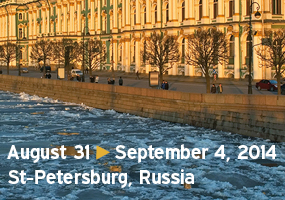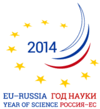Workshops are organised every day during the lunch break in the main auditorium. Lunch will be served in the auditorium for the workshop participants.
Monday September 1, 13:00: OpenEye
“Virtual Screening and Lead Hopping: How to Choose the Best Tool”
Presenters: Paul Hawkins & Gunther Stahl
When confronted with a problem in computational drug design there often exists a large number of tools that the computational chemist could apply to the problem. The difficulty lies in predicting which tool(s) will be the most useful for that problem. For example in virtual screening a wide variety of both 2D (graph-based) and 3D methods (both ligand-based and structure-based) are available, but predicting which one will be optimal for a given problem is difficult. A solution to this problem through the application of appropriate statistical methods will be presented, with a focus on making reliable predictions about the future differences in performance between methods. In this section the attendees will learn about a variety of statistical approaches for method comparison in general.
Attendees will learn how to apply some of these statistical techniques to optimising virtual screening performance in a hands-on session using the vROCS tool, the graphical interface to the well-known shape based virtual screening tool ROCS.
Tuesday September 2, 13:00: Biovia (Formerly Accelrys)
“QSAR Workbench: A Web Application to Capture and Deliver Robust Statistical Models”
Presenter: Tien Luu, Lead Scientist
Here, we will present the QSAR Workbench, a comprehensive statistical modelling web application, that can rapidly help guide QSAR experts through all key stages of model development. Based on Pipeline Pilot chemistry and data modelling collections, it provides functionality to handle data sets, calculate descriptors, learn from an exhaustive number of statistical models and validate them. Furthermore, as a Pipeline Pilot protocol-based application, it is easy for experts to introduce new statistical methods and descriptors and to try new combinations of existing methods, which enables for much more rapid exploration of the statistical model space. Successfully validated predictive models can be published as a web service and integrated with various desktop tools, enabling project teams to usefully exploit series- or project-specific within their existing medicinal chemistry applications.
Please register by email:
Wednesday September 3, 12:35: Chemical Computing Group
“Introduction to Cheminformatics and QSAR Modeling Using the MOE Platform”
Presenters: Barbara Sander & Markus Kossner
The workshop will introduce the basic techniques of cheminformatics such as forcefields, ab initio calculations, molecular database generation and optimization of databases for drug discovery. Descriptor based methods will be compared to fingerprints as well as demonstrating how both techniques can be combined to leverage the strength of each method to build QSAR models.
Workshops are organised every day during the lunch break in the main auditorium. Lunch will be served in the auditorium for the workshop participants.


























